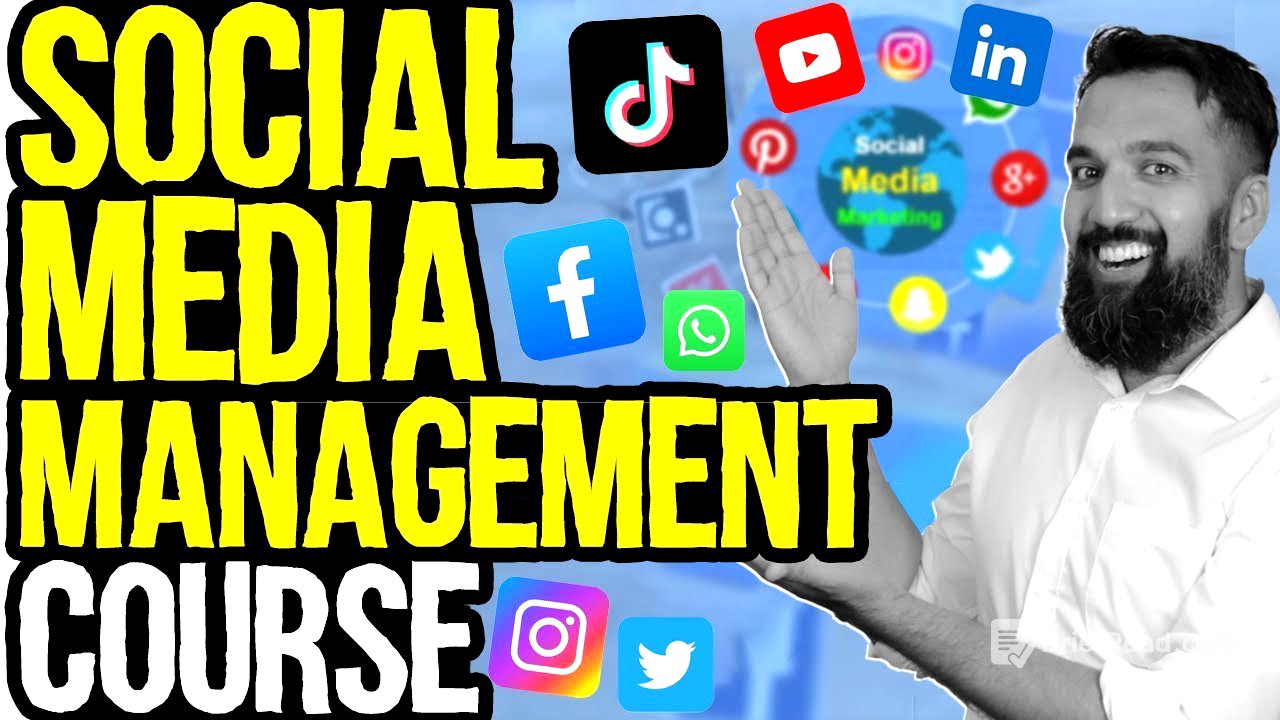TLDR;
This video provides a comprehensive social media management course, covering essential aspects such as content creation, audience engagement, analytics, and job searching. It emphasizes the importance of understanding brand themes, optimizing content for search engines, and using various tools to schedule and manage social media posts effectively. The course also guides viewers on building a professional portfolio and leveraging platforms like LinkedIn to find freelancing opportunities.
- Understanding the importance of social media management for brands.
- Creating engaging content tailored to specific audiences.
- Utilizing tools for scheduling and optimizing social media posts.
- Building a professional portfolio and finding job opportunities in the field.
Why Social Media Management is Important [0:49]
Social media management is crucial for brands to maintain an active online presence and stay competitive. Brands hire social media managers to handle their social media accounts, create content, and engage with their audience. This allows the brands to focus on their core business activities. For example, manufacturing companies can use social media managers to showcase their product-making process and upcoming products, while influencers can leverage them to expand their reach and create a personal brand.
Scope and Opportunities in Social Media Management [6:31]
The demand for social media managers is high due to the increasing number of brands launching and seeking to build a social presence. Social media managers help brands with lead generation, sales, customer acquisition, and expanding their reach. Brand awareness is a key aspect, where social media managers link a brand to a person's mind, ensuring the brand stays competitive and top-of-mind for consumers.
Key Elements of Social Media Management: Audience Research [9:56]
Audience research is a critical element in social media management. It involves identifying and understanding the target audience for a brand. This includes determining their demographics, interests, and online behavior. By analyzing competitors and previous customer data, social media managers can tailor content to attract the right audience and increase sales.
Social Media Platforms to Consider [15:29]
Selecting the right social media platforms is essential for effective marketing. Facebook is the largest social media platform, ideal for marketing awareness and driving traffic to websites. YouTube is suitable for posting videos and tutorials, while Instagram is popular among a younger audience. Each platform serves a unique purpose, and social media managers should strategically choose platforms based on their target audience and marketing goals.
Brand Theme Creation [18:28]
Creating a consistent brand theme is vital for establishing a strong brand identity. A brand theme includes the colors, fonts, and overall style that represent the brand. For example, Colgate uses red, while KFC uses red and fried chicken imagery. Social media managers should maintain this theme across all postings to ensure brand recognition.
Image Content Creation [24:56]
Creating visually appealing images is a key skill for social media managers. Tools like Photoshop, Canva, and Figma can be used to design images that align with the brand's theme. The process involves selecting appropriate images, adding text, and incorporating the brand's logo.
Video Content Creation [37:27]
Video editing is an important aspect of social media management. Tools like Premiere Pro and CapCut can be used to create engaging video content for platforms like TikTok and Instagram Reels. Key elements include adding subtitles, logos, and visual elements to make the videos appealing and informative.
Secrets to Viral Short Videos [43:10]
Creating viral short videos involves several strategies. Starting with a hook to grab the viewer's attention, keeping the content short and to the point, encouraging audience engagement, maintaining a positive tone, and adding visual elements are all crucial for success.
Content Organization and Scheduling [46:06]
Organizing and scheduling content efficiently is essential for managing social media effectively. This involves creating folders for different types of content and using scheduling tools like Buffer and Social Pilot to automate postings. These tools allow social media managers to schedule posts in advance, ensuring consistency and saving time.
Content Optimization and SEO [57:05]
Optimizing content for search engines is crucial for increasing visibility. This involves using relevant keywords in titles, descriptions, and hashtags. Tools like Google Keyword Planner and TubeBuddy can help identify trending keywords and optimize content for better ranking.
Analytics and Engagement [1:03:25]
Analyzing analytics and engaging with the audience are vital for understanding content performance and building a loyal following. By tracking metrics like reach, engagement, and demographics, social media managers can tailor their content to better suit their audience's preferences. Responding to comments and messages also helps foster a sense of community and increases engagement.
Freelancing and Job Opportunities [1:09:51]
Finding freelancing and job opportunities involves building a professional portfolio and leveraging platforms like LinkedIn. Creating a compelling profile, showcasing relevant skills, and providing testimonials can increase the chances of getting hired. LinkedIn's job section offers various remote and physical job opportunities in social media management.









